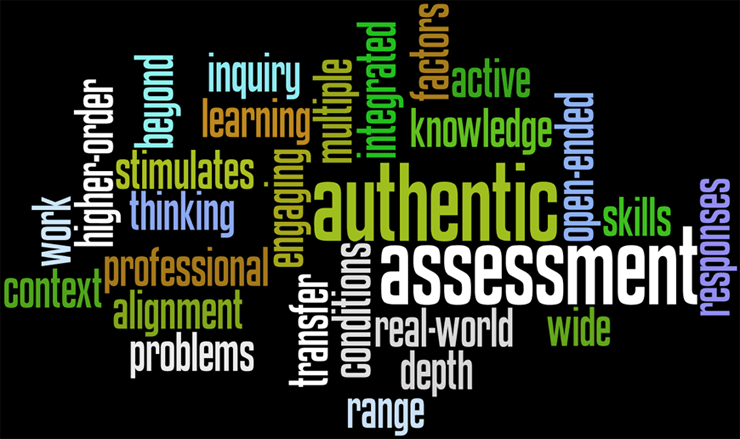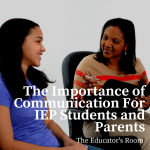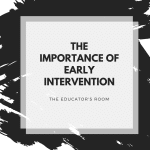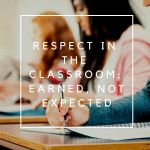[fusion_builder_container hundred_percent=”yes” overflow=”visible”][fusion_builder_row][fusion_builder_column type=”1_1″ background_position=”left top” background_color=”” border_size=”” border_color=”” border_style=”solid” spacing=”yes” background_image=”” background_repeat=”no-repeat” padding=”” margin_top=”0px” margin_bottom=”0px” class=”” id=”” animation_type=”” animation_speed=”0.3″ animation_direction=”left” hide_on_mobile=”no” center_content=”no” min_height=”none”]
Formative assessment is not just another buzz word in education. Formative assessment goes beyond the exit ticket and check-in tests. This is a shift in teaching and classroom management that allows for students and teachers to reflect on learning. Formative assessment involves setting clear learning goals and knowing what mastery of these goals looks like. Then, teachers and students work together to collaborate and reflect on the learning. This series will cover ways you can adjust what you are currently doing to gain time and learning in your room through formative assessment.
Teachers are savvy in writing objectives, but the process necessary for formative assessment in your classroom involves breaking down your standards into building blocks. When you are using formative assessment in your classroom you must be clear and intentional in your goals. Looking at your standards, break down what students should do and how you will know they are doing this. This is a two-part process.
Clear learning goals should be created from your state, local or career and college readiness standards. Each unit has standards you are addressing, but when using formative assessment you need to break these down into the building blocks students go through as they learn. What do you want your students to understand and learn today?
To start, break each standard into building blocks that are necessary for the students to move toward mastery of the standard. This is what your students are learning today. “Today you will learn about _______________.” These objectives move students from their current position closer to the end standards. Think about prior knowledge and student learning progression. The learning objectives for this class period should be posted and communicated with students so they can use them to collaborate and reflect on their own learning. They are the focus of your teaching and the activities done in the classroom. They will change from activity to activity throughout the unit, but they support the overall unit standards.
Next, connect the learning objective to success criteria. How will you know the students have mastered the learning objective? What do you need to see or hear when students are progressing through the lesson? These are tasks, conversations, observations, activities that will prove mastery of the learning objective. These should be stated to the students so they can again collaborate and reflect and help themselves move towards the goals.
Here is an example of standards broken down into objectives and success criteria. These would be shared with fourth graders during a unit on economy and the southern region of the United States.
Standards:
- Choices have consequences
- Individuals have rights and responsibilities
- Societies are shaped by beliefs, ideas, and diversity
- Societies experience continuity and change over time
- Relationship among people. places, ideas and environments are dynamic
State Objectives:
- Discuss opportunity cost in regards to choices made in different regions of the country
- Define the characteristics of a market economy (private property, voluntary exchange, competition, etc.)
- Explain the production, distribution, and consumption of a product
- Define goods, services, consumers, economy, cost/benefit, etc.
Unit Goal: (What I want them to understand about the state objectives)
Understand regions have goods and services that are particular to that region that drive their economy
Lesson Goal: (First step in this unit goal, shared with students during lessons)
Today you will understand reasons why goods and services develop in a particular region.
Success Criteria: (How I will know they know this, will be multiple class periods, shared with students during lessons)
Explain why goods and services belong in a region
Explain environmental factors that contribute to or impact goods and services of a region
Explain labor force and skills of workers that contribute to or impact goods and services of a region
Explain renewable and non-renewable natural resources that contribute to or impact goods and services of region
Describe goods and services of a region
Activities:
Students will evaluate maps to identify landforms in the south and compare to NE and Midwest (prior knowledge)
Why are the landforms and waterways found in the south?
What are the differences compared to the NE states and Midwestern states?
Will the resources be the same in the south? Why?
What types of goods and services will be in south? Why?
Students will evaluate climate maps to identify weather patterns in the south and compare to NE and Midwest (prior knowledge)
What impacts the natural resources available in the south?
How is the climate similar and different to the climate in the NE and Midwest states?
Will the resources be the same in the south? Why?
What types of goods and services will be in south? Why?
Students will then research goods and services in the south to prove or disprove their hypothesis about southern resources.
Students will create a document (brochure, Prezi, poster, etc.) to explain the life cycle of a one product in the south.
Artifacts for proof of learning (use these as students work to verify and adjust learning of each student):
Maps
Share Out
Chart
Research Notes
Formative assessment involves making decisions measured against learning objectives and success criteria. What do you do when students have not shown mastery? What do you do when they have mastered the objective? Knowing what you expect and what you are looking for allows you to ask meaningful questions to help students along the path.
This pace will vary depending on the standards. Setting clear objectives and success criteria will allow you to help students focus their learning. The role of educator has changed from being the holder of knowledge to the guide of knowledge. Mindfully setting up activities that allow students to apply their prior knowledge and move towards your standards will engage students and therefore increase the learning happening in your classroom.
To read more about how Lori uses formative assessments in the classroom, click here.[/fusion_builder_column][/fusion_builder_row][/fusion_builder_container]






Leave a comment